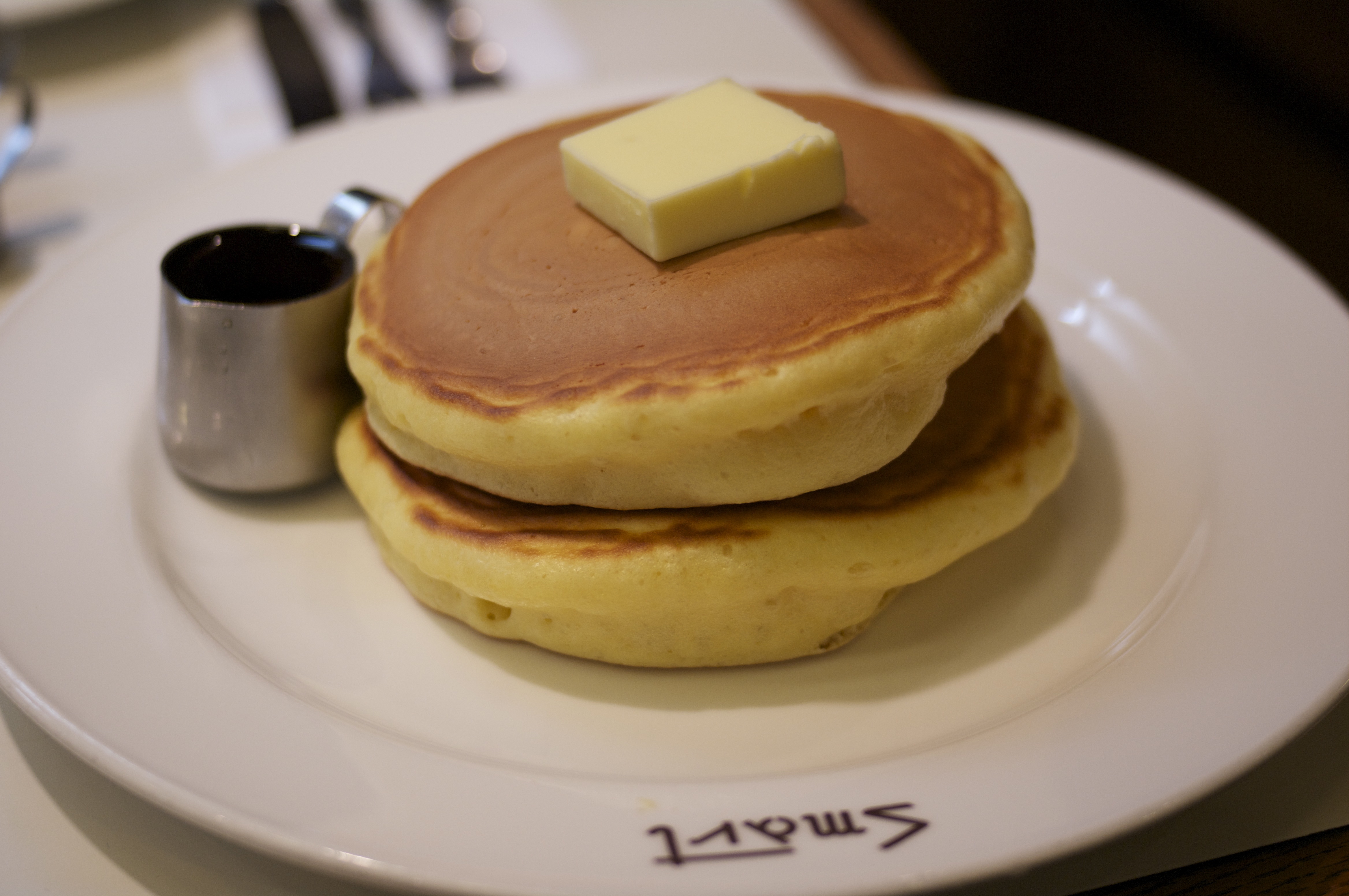This morning after writing some emails, I walked into the kitchen and found it covered with flour, baking powder, milk (why were three different half-finished cartons open on the countertop?) and broken egg shells lay on the floor and work surfaces. My children love making pancakes… all by themselves. At ages 9, 6 and 2, pancake-making is their first foray into unsupervised cooking. Weekend mornings are prime pancake-making time, with the three of them cracking eggs, measuring out flour, sugar, baking powder and milk. Sometimes there are add-ons: blueberries or bananas, sometimes strawberries depending on the season. They measure, mix, ladle out the batter and flip the pancakes themselves.

The first few times we made pancakes, I got myself right in the thick of it in a pretty Gordon Ramsay sort of way. Barking orders to my pint-sized sous-chefs, we made the pancakes efficiently and with minimal mess. They were delicious and I was very proud of them. The children were slightly less proud and I began to notice how my stress in the kitchen to do it ‘right’ was detracting from their experience of cooking. I decided to leave them to it and see what happened.
Since then they have had several interesting kitchen experiences. One time the pancakes were burned on the outside and raw in the middle (they ate them anyway). Once they were dyed pink and very tough from too much flour and over-beating (they ate those too). Another time they measured out a half cup of salt rather than the half teaspoon called for in the recipe. They tasted those, but alas, they were left on the plates for me to clear away. Over time they have come to master the art of pancake making. Today it was thick, squidgy pancakes with nutella… they ate every bite. Throughout each of these ‘experiments’ the challenge for me has been to keep my own negative comments to myself. I want to say, “what did I tell you about measuring out the salt? What a waste of food!” This morning when they said, “Look what we made!” I wanted to say, “Yeah.. a MESS!” But I didn’t. I said, “Wow, look at those pancakes!”
I have plenty of experience of saying the wrong thing and wishing I could claw back the words that just came out of my mouth, like taking an eraser to the word balloon above my head. I want to stop the scene, bring on a stage hand with a black and white board: “Scott family kitchen scene: TAKE TWO. And… Action!” I cringe at the things I say and wonder if my children’s self esteem will be resilient enough to withstand my parenting blunders.
Sometimes it’s worth keeping schtum about the thoughts that instantly pop into our heads. I don’t need to say everything I think. My thoughts are a manifestation of my personality– my experiences, learning and impressions that have been built up throughout life. They are not necessarily a reflection of the reality before me or my children’s capabilities. And they certainly aren’t always helpful: they usually say more about me than they do about my children. The bottom line is that thoughts don’t always need to be given form. I can choose to have the thoughts and let them go. I can choose how I want to respond. I am the boss, not my thoughts.
Having enough self-control to take a millisecond’s pause to make a decision not to say what instantly pops into my head is so hard. Much of the time I am a slave to my own thoughts and I say whatever I am thinking. But sometimes, like today, I manage to look into my children’s delighted faces and see that they are so proud of themselves and their autonomy, that they have invited me to relish their success and that there is nothing to be gained in raining on their parade. They learn more from their own mistakes than from my spiteful one-liners. Keeping my thoughts to myself preserved my connection with my children today and for that I am thankful.
Photo credit: Wikimedia Commons.
Comments are closed